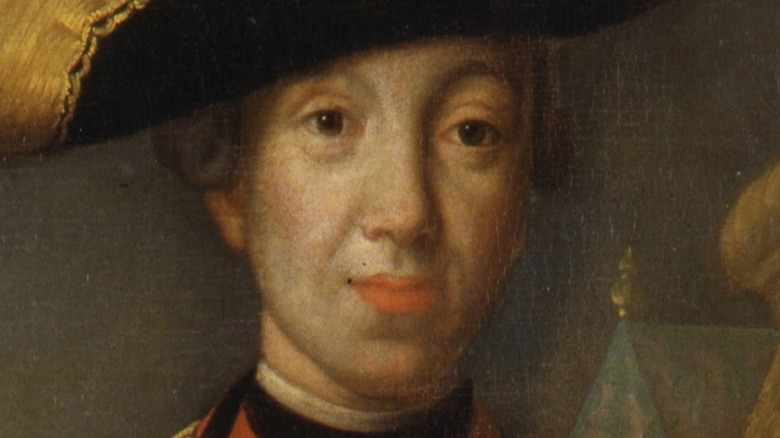Why Peter III Of Russia Once Had A Rat Put On Trial And Executed
Peter III of Russia reigned for only six months in 1762. We don't know much about his life, and a lot of what we do know comes from the memoirs of others. Born in 1728, and orphaned at the age of 11, Peter lived with his aunt, Russia's Empress Elizabeth. One of her goals was to find a wife for young Peter, and that person would eventually become Catherine the Great (via Biography). Theirs was a loveless marriage, and Peter didn't show Catherine much attention., but he did have other interests, including drinking and smoking (per Russia Beyond).
Peter had another odd interest, and it was playing with toys and dolls. In fact, Peter may have loved them more than he did Catherine. According to her memoirs, Peter had many "children's amusements," which he loved "to the point of passion: During the day, they were hidden in my bed and under it" (via Russia Beyond). And it was this fondness that led to putting a rat on trial.
The rat committed a crime
The story comes from Catherine, who reportedly entered Peter's room one day and saw a rat hanging on a wall. When she inquired about it, he told her that the rat had committed a "great crime" had to be punished, per The Vintage News. The crime? Oddly enough, it all goes back to Peter's playthings.
The incident apparently happened one day while Peter was playing with his toy soldiers. He reportedly made a fortress for them out of paper. However, the fortress was not enough not protect them from the rat, who managed to sneak inside and chew the head off one of them. Thankfully, his dog noticed the rat and caught it, preventing any other soldiers from suffering the same fate (via The Vintage News). But that was not the end of the tale, and this is where things get a little weird.
The rat was punished
The rat had to pay for his offense, and it appeared before a court martial, where it was sentenced to execution. Peter constructed a tiny gallows for the occasion, and used it on the poor critter (via Russia Beyond). Catherine might not have witnessed the crime, but The Vintage News reports that she mentioned the account in her memoirs. She writes, "His setter had caught the criminal, he had been tried by martial law and immediately hung; and as I saw was to remain three days exposed as a public example."
Catherine expressed a bit of compassion for the creature. "In justification of the rat," she continues, "it may at least be said that he was hung without having been questioned or heard in his own defense," per The Vintage News. While she might have expressed some sympathy for the rat, she showed even less for her husband, whom she conspired to overthrow (via Britannica).


